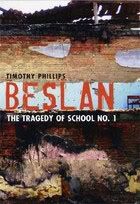That semester was a particularly newsworthy one. My dorm got about 30 copies of The Honolulu Advertiser every day, which were available for free to the residents on a first-come, first-serve basis. Since I was one of those rare students who actually WENT to my early morning classes, I always got a paper. I would read it from cover to cover, excepting the business pages, and thus my memories of that semester are marked by what was happening in the world at the time.
Hurricanes Charley, Frances, Ivan, and Jeanne hit Florida.
Yasser Arafat, Christopher Reeve, Janet Leigh, and Howard Keel died.
The Boston Red Sox finally beat the Curse of the Bambino and won the World Series.
The Summer Olympics in Athens were held.
Bush and Kerry went head to head in the 2004 Presidential elections.
And in Beslan, North Ossetia-Alania, Russia, Chechen rebels stormed a school and held roughly 1300 men, women, and children captive.

The Beslan School Massacre is what I remember the most about the Autumn of 2004. I was absolutely transfixed and horrified by the news accounts, and after every class would rush back to my dorm and catch up on the news accounts. I didn't understand the politics and history behind the Chechen rebels' decision to commit such a universally atrocious act---all I could see were bad guys doing bad things to innocent people.
Fast-forward to 2009. To mark the five-year anniversary of the massacre, I requested Timothy Phillips' Beslan: The Tragedy of School No. 1 from my local library. I wanted to revisit the events from a less emotional perspective. That sounds a little cold, I think, but you get considerably more involved and emotional watching something develop on live TV than you do reading about it half a decade later.
It was still emotional, as anything is wont to be when it involves hundreds of dead children and adults and twice as many injured. But it was also incredibly fascinating. Philips would alternate chapters. First, a chapter would delve into the background of Russia's economic, social, and imperial history, with special emphasis on the conflict between the North Ossetian, Ingushetian, and Chechen tribes. The next chapter would cover the events of the siege in chronological order, made more clear and meaningful by the explanation in the previous chapter. And so on throughout the book.
Now, the words "economic history" alone are just about enough to put me to sleep. So I was surprised by how interesting I found the book's explantion for Russia's situation. It really threw a lot of light on what the people in Russia are going through--things that, to a large extent, we in the West know nothing about. The book also made clear why the Chechen rebels felt driven to do what they did, and while it also makes no excuses for them and emphasizes that it was a horrific, unthinkable act, it also states plainly that things in Chechnya and Ingushetia have to change.
Obviously, this isn't a book for everyone. There were times, mostly during the chapters about the siege itself, where I had to put the book down and take a long walk to clear my head. It's brutally straight-forward, and the interviews with the survivors, most of whom saw their children and loved ones blown to pieces in front of them, were heartbreaking. But I'm glad I made myself read it, both because of how it deepened my understanding about events so otherwise beyond my comprehension, and because of how grateful it made me for my own boring, relatively uncomplicated life.
No comments:
Post a Comment